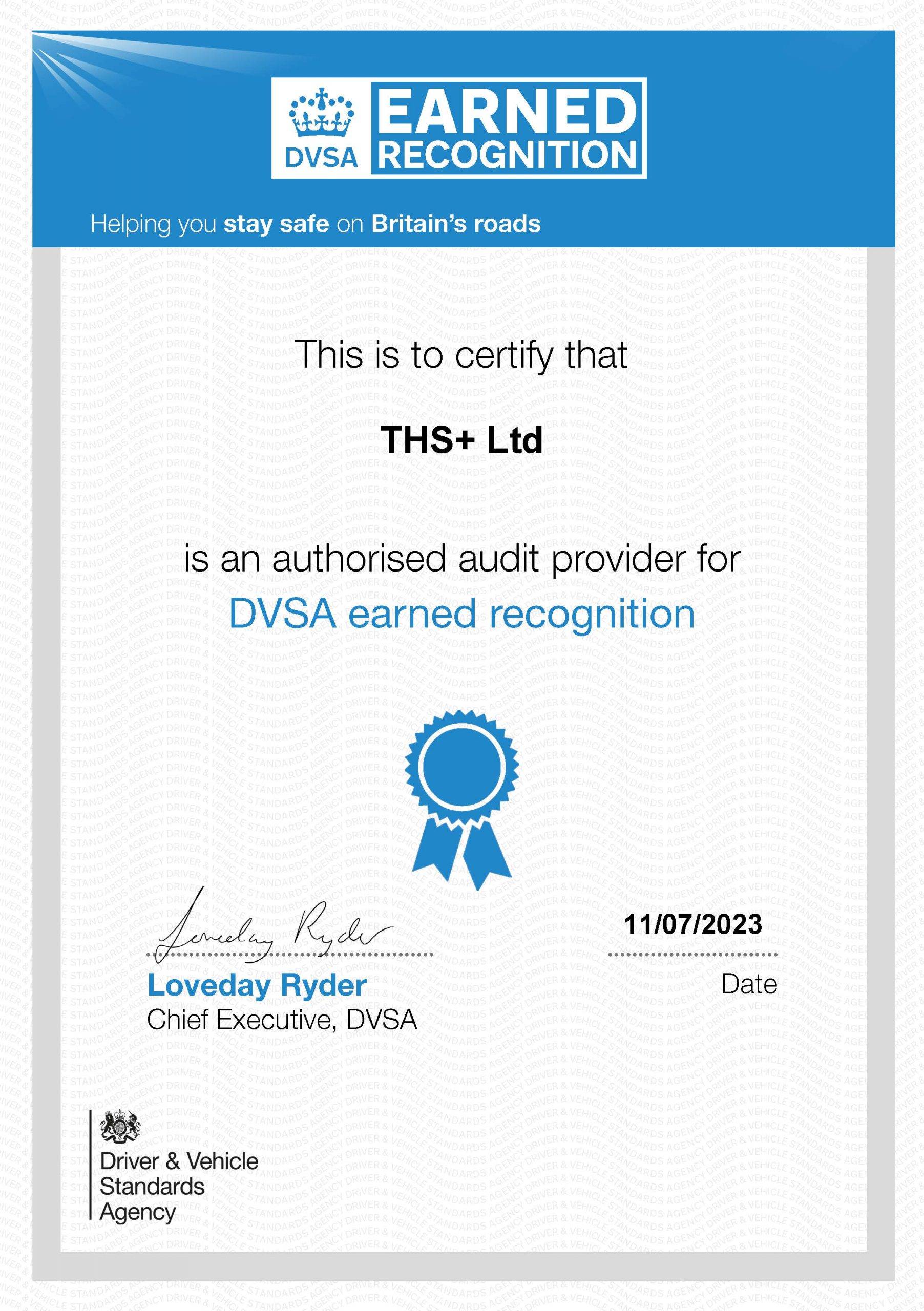(Driver CPC, Transport Manager CPC) Transportation and logistics, construction (Construction Skills Certification Scheme), healthcare (Certified Nursing Assistant, Certified Medical Assistant), finance (Chartered Financial Analyst), and many other industries and professions frequently require a CPC.
A Certificate of Professional Competence (CPC) is a certificate or certification that proves a person’s competence and expertise in a certain professional sector or business. It is given to those who have finished a certain training program or test procedure that verifies their knowledge, skills, and talents in their chosen sector.
Depending on the sector or profession, the CPC is often issued by professional organizations, regulatory authorities, or educational institutions. It is a recognized certificate that verifies a person’s skill and competency in their profession.
Depending on the business and profession, the prerequisites for acquiring a CPC might vary greatly. Some occupations may need the completion of a formal education program, followed by a licensing examination or evaluation. Others may need a mix of education, hands-on experience, and passing a competence assessment.
A Certificate of Professional Competence shows employers, clients, and the general public that a person has the essential skills, knowledge, and credentials to execute their job or deliver specialized services at a professional level. It boosts professional reputation, expands career options, and may be mandated by law or industry rules in some professions.
What is the difference between Transport Manager CPC and Driver CPC?

The Transport Manager CPC and the Driver CPC are two separate certifications in the transport business; however, they are aimed at different positions and responsibilities. Here’s a breakdown of the distinctions:
1-Transport Manager CPC (Certificate of Professional Competence):
The Transport Manager CPC qualification is essential for persons who want to work as transport managers in the road haulage and passenger transportation industries. It focuses on transportation operations management rather than driving itself. Transport Manager CPC encompasses legal frameworks, health and safety requirements, fleet management, operational compliance, route planning, and overall transportation operations management. It is intended for those who are in charge of monitoring and directing a company’s transport operations, as well as ensuring compliance with relevant rules and the safe and efficient functioning of the firm.
The Certificate of Professional Competence (CPC) for Transport Managers (HGV) is a certificate necessary in the United Kingdom for persons wishing to work as transport managers in the road haulage and passenger transportation industries. The Driver and Vehicle Standards Agency (DVSA) regulates this degree, which demonstrates the requisite knowledge and skills to efficiently manage transport operations.
The CPC for Transport Managers (HGV) focuses on the management of heavy goods vehicles (HGVs) and covers issues including regulatory compliance, fleet management, health and safety, logistical planning, and legal requirements.
Passing a series of tests that examine the candidate’s grasp of the appropriate courses is normally required to get the CPC for Transport Managers (HGV). There are two elements to the qualification: the CPC theory test and the CPC case study exam. The CPC certification requires the successful completion of both tests.
Having the CPC for Transport Managers (HGV) strengthens professional reputation, improves employment opportunities, and raises earning potential for persons seeking a career in transport management. Employers in the road haulage and passenger transport sectors frequently prefer applicants with this degree because it indicates their understanding of regulatory compliance and commitment to effective transportation operations.
Transport Manager Course – 10 days
A 10-day Transport Manager Course is a thorough training program designed to provide professionals with the information and abilities needed to become successful transport managers. These courses are often intense and cover a wide range of transportation-related subjects.
The course’s precise material and format may differ based on the training provider, but here’s a basic outline of what you can anticipate from a 10-day Transport Manager Course:
Introduction to Transport Management:
An outline of a transport manager’s duties and responsibilities, including legal requirements, regulatory compliance, and industry best practices.
Transport Operations:
Discussions in depth about different areas of transportation operations, such as route planning, scheduling, vehicle selection, and load management. This may also involve conversations about transportation technologies and software.
Legislation and Compliance:
Comprehensive overview of important transportation legislation, including driver hours and rest times, tachograph restrictions, operator licensing, vehicle maintenance standards, and other legal responsibilities.
Health and Safety:
Comprehensive training on transportation-specific health and safety requirements, concentrating on risk assessment, accident prevention, emergency procedures, and fostering a safe working environment.
Financial Management:
Understanding financial aspects of transport management, including budgeting, cost control, pricing strategies, and financial reporting.
Human Resources and Personnel Management:
Discussions about successful driver recruiting and management, including themes such as training, performance management, and disciplinary procedures.
Environmental Considerations:
Environmental rules and solutions for sustainable transportation operations, such as fuel economy, emissions reduction, and waste management, are being investigated.
Customer Service and Relationship Management:
Training in the areas of delivering exceptional customer service, maintaining client relationships, and dealing with customer complaints and questions.
Professional Development:
Sessions on leadership, communication, and personal development to help you be a better transport manager and grow your career.
Case Studies and Practical Exercises:
To enhance comprehension and problem-solving abilities, real-life case studies, simulations, and exercises are used to reinforce information.
Participants will get a complete grasp of transport management ideas and practices after finishing a 10-day Transport Manager Course. This training will prepare students to properly handle the demands and obligations of a transport management job.
What does Transport Manager CPC Qualification refer to?
The qualification commonly referred to as the Transport Manager CPC (Certificate of Professional Competence) is formally known as the CPC for Transport Managers. It is a professional qualification required for individuals who wish to become transport managers in the road haulage and passenger transport industries in the UK and other European Union member states.
CPC for Transport Managers (Road Haulage):
This certification is intended for persons who manage road haulage operations including the transportation of products via heavy goods vehicles (HGVs) and trucks.
CPC for Transport Managers (Passenger Transport):
This certification is intended for those who are in charge of passenger transport operations such as bus and coach services, encompassing both local and long-distance travel.
The CPC for Transport Managers focuses on building the knowledge and abilities required to manage transport operations efficiently. Legal requirements, regulatory compliance, health and safety, fleet management, logistical planning, financial management, and environmental issues are all included in the certification.
Individuals must complete a series of tests offered by authorized training institutions in order to get the CPC for Transport Managers. A theoretical test and a case study exam are included in the tests. The CPC certification requires the successful completion of both tests.
Individuals who have achieved the CPC for Transport Managers can legally assume the tasks of a transport manager in their chosen area, including maintaining compliance with relevant rules and promoting safe and efficient transportation operations.
2-Driver CPC (Certificate of Professional Competence):
Driver CPC is a certification necessary for professional drivers who operate vehicles such as large goods trucks (LGV) or passenger-carrying vehicles (PCV). Driver CPC aims to improve road safety, improve driving skills, and ensure professional behavior among drivers. It entails both initial training, which includes theoretical and practical tests, and continuing training every five years to keep the qualification current. Driving skills, road safety, regulatory requirements, vehicle maintenance, and professional behavior are all included in Driver CPC. It is intended for drivers who use automobiles as part of their employment.
In conclusion, Transport Manager CPC is for those who oversee and manage transportation operations, whereas Driver CPC is for professional drivers who operate cars as part of their employment. Transport Manager CPC is concerned with management issues, whereas Driver CPC is concerned with driving abilities, road safety, and professional behavior.

What is Transport Manager CPC – TM CPC?
Transport Manager CPC (Certificate of Professional Competence) is a certificate necessary for those who want to work as transport managers in the European Union (EU) and European Economic Area (EEA) in the road haulage and passenger transport industries. The CPC is a regulatory obligation established by EU legislation to guarantee that transportation operations are handled effectively, safely, and in accordance with applicable rules.
The Transport Manager CPC consists of two parts:
The CPC Initial Qualification:
This is the initial step towards acquiring the Transport Manager CPC and is required for those who are new to the profession or have never had a CPC certificate. It entails completing a series of tests covering areas such as the transportation industry’s legislative framework, health and safety requirements, fleet management, operational compliance, and more.
The CPC Periodic Training:
After obtaining the first certification, an individual must additionally undergo recurrent training to retain their CPC status. This program requires transport managers to complete 35 hours of authorized training every five years, ensuring that they are up to speed on industry advances, legislation, and best practices.
Individuals who are responsible for the safe and compliant running of transport enterprises must have a Transport Manager CPC. It indicates their ability to handle different parts of transportation operations, such as fleet maintenance, driver management, regulatory compliance, and route planning.
It is vital to note that exact Transport Manager CPC standards and laws may differ between EU and EEA nations. Individuals should seek thorough information on the qualifications and processes applicable to their specific region from the relevant national transport authorities or professional organizations.
Benefits of Transport Manager CPC:
Individuals working in the transport business might benefit from obtaining a Transport Manager CPC (Certificate of Professional Competence). Here are some of the primary benefits:
Compliance with legal requirements:
Many nations, notably the European Union (EU) and the European Economic Area (EEA), have legislative requirements for trained Transport Manager CPC holders to be present at all transport activities. Individuals who get the qualification can assure compliance with these legal responsibilities, avoiding penalties and legal complications.
Enhanced knowledge and skills:
The Transport Manager CPC course covers a wide range of transport-related subjects, including as legal frameworks, health and safety requirements, fleet management, operational compliance, and more. It provides employees with the comprehensive knowledge and abilities required to effectively manage transportation operations while guaranteeing safety, efficiency, and regulatory compliance.
Professional credibility:
A Transport Manager CPC increases professional credibility and displays a high degree of proficiency in transportation management. It demonstrates that an individual has received specialized training and possesses the requisite knowledge and abilities to properly perform the function of transport manager. This might improve job chances and provide opportunities for progression in the business.
Improved operational efficiency:
Transport managers with a CPC certificate are well-equipped to adopt best practices in transportation management. They are capable of optimizing routes, ensuring optimum fleet utilization, and implementing successful operational plans. This can lead to cost savings, increased production, and more efficient operations for transportation businesses.
Enhanced safety measures:
Health and safety requirements, risk management, and driver management are all included in Transport Manager CPC training. Transport managers may use this knowledge to design and enforce safety rules, improve driver training and compliance, and limit hazards connected with transportation operations. This makes workplaces safer and minimizes the probability of accidents or mishaps.
Industry recognition and networking opportunities:
Having a Transport Manager CPC shows a dedication to professional development and respect to industry standards. It may result in acknowledgment from peers, employers, and industry stakeholders. Individuals with a CPC certificate can also join professional networks and organizations to interact with other transportation professionals, share insights, and stay up to current on industry trends.
It is crucial to note that the precise benefits of Transport Manager CPC may differ based on the location and the transportation sector needs in that area. Individuals should become acquainted with the relevant legislation and expectations in their nation or region in order to properly comprehend the benefits of obtaining a Transport Manager CPC.
What is DCPC?
DCPC stands for Driver Certificate of Professional Competence. It is a qualification that professional drivers need to acquire to legally drive certain types of vehicles for hire or reward. The Driver CPC was introduced in Europe with the aim of improving road safety and driver professionalism.
The Driver CPC applies to drivers of big vehicles such as buses, coaches, and lorries that exceed a specified weight limit, which varies by nation. It guarantees that drivers have received proper training and are proficient in numerous elements of professional driving, such as road safety, rules, vehicle maintenance, and driver hours.
Drivers normally need to undergo basic qualifying training, which includes both theoretical and practical components, in order to earn a Driver CPC. Driver behaviors, safe driving practices, emergency procedures, customer service, and regulatory compliance are all included in the training.
After completing the basic qualification and passing the required examinations, a driver is awarded a Driver CPC card, which acts as confirmation of professional competence. The DCPC is typically valid for a defined amount of time, and drivers must attend frequent training to retain and renew their certification.
The Driver CPC’s particular rules and regulations differ per nation or location. As a result, it’s critical to check with your local transportation authority or licensing agency to understand the specific standards and processes for getting and renewing a Driver CPC.
Background of Driver CPC:
The Driver Certificate of Professional Competence (DCPC) was introduced in 2007 in accordance with EU Directive 2003/59/EC. DCPC entered into force for passenger travel in 2008 and freight transportation in 2009.
Unless a driver has ‘earned privileges,’ such as a bus or truck driving license at the time the requirements were established, the initial certification is obtained by passing four exams.
Even if they have obtained privileges, all drivers must maintain their licenses by completing 35 hours of periodic training every five years.
Upon completion of training, drivers are issued a Driver Qualification Card (DQC), which they must carry when driving professionally.
Initial qualification
The basic Driver CPC qualification consists of four sections. These comprise the theory and practical examinations that drivers must pass before obtaining their full vocational driving license.
The remaining two sections are optional and should only be taken if the driver needs the complete Driver CPC to drive buses, coaches, or lorry, trucks professionally. This allows drivers the option of obtaining simply their occupational license or obtaining their complete Driver CPC at the same time.
In the United Kingdom, it is first gained by passing four examinations, which include a 2-part theory test
• case studies
• practical driving tests
• a practical demonstration of vehicle operation
Driver CPC theory tests
Part one – Theory test.
The theoretical test consists of two parts: a multiple-choice test and a danger perception test. The multiple-choice exam lasts 1 hour and 55 minutes and consists of 100 questions. The current pass percentage is 85%. The theoretical test’s hazard perception section consists of 19 video segments with a total of 20 scoreable dangers. Each danger is worth a maximum of 5 points, and a pass requires a score of 67%.
The driver must take both exams independently, regardless of the sequence in which they are completed. A theory test certificate will be issued to the driver if both tests are passed within two years of each other. After passing the Driver CPC Module 1 theory test, the driver must pass the Driver CPC Module 3 driving test within two years, otherwise, the driver must retake the Module 1 theory test.
Part two – Case studies
The test consists of seven case studies that the driver must complete on a computer. The case studies are essentially brief scenarios based on events that are extremely likely to occur in a lorry driver’s working life. The exam was created by industry professionals and incorporates genuine scenarios that a truck driver would face on the road. In each of the seven case studies, the driver is asked between six and eight multiple-choice questions. The entire test lasts 1 hour and 55 minutes, with a pass level of 80%.
A passing letter is valid for two years, and the driver must complete and pass the Driver CPC module 4 practical demonstration test within that time frame, or else the driver must retake the module 2 case studies test.
Practical tests
Part three – License acquisition (practical test of driving ability)
The driving ability test is a practical test that lasts for approximately 1 hour and 30 minutes and includes:
- Vehicle safety questions
- Practical road driving
- Off-road exercises
Part four – Driver CPC practical test (vehicle safety demonstration)
The Driver CPC Module 4 is an interactive test in which the driver is expected to show and explain a variety of procedures needed of a truck driver aside from driving. This module requires the driver to be able to:
- Load the vehicle following the correct safety rules and ensure the load is kept secure
- Prevent trafficking in illegal immigrants
- Assess emergency situations
- Do a complete walk round vehicle safety check
Drivers must pass all four components to obtain the complete Driver CPC certification. They will just need to take and pass part one and part three if they wish to earn a vocational license but will not be driving for a career.
Periodic training
To continue driving for a living, all drivers must undergo 35 hours of periodic training every five years on an ongoing basis. Drivers may view their Driver CPC periodic training record online to see how many hours they have completed. Periodic training is provided through courses that drivers take during the five-year period in which their current Driver CPC is valid. These tests do not have a pass or fail component. A training course must be at least seven hours long, although it may be longer. If a seven-hour course is divided into two parts, the second half must begin within 24 hours after the first part’s completion. Driver CPC courses must be authorized by the DVSA.
For a nominal administrative fee, the training provider will upload the driver’s completed training hours to the DVSA website.
Each new five-year term will begin when the driver’s existing Driver CPC qualification expires, not when they meet the 35-hour minimum training requirement.
Prior to September 10, 2008, drivers of PCV vehicles were required to finish their first block of 35 hours of training and have their DQC granted by September 9, 2013. The deadline for finishing their second set of training is September 9, 2018.
Prior to September 10, 2009, drivers of LGV vehicles were required to undergo 35 hours of training and have their DQC granted by September 9, 2014. The deadline for finishing their second session of training is September 9, 2019.
Drivers of both PCV and LGV vehicles are required to complete only one set of periodic training every five years.
Enforcement
- If a driver passes the Driver CPC first qualifying exams and does not have ‘acquired or Grandfather clause privileges,’ they will be awarded a DQC.
- Drivers with acquired rights are not permitted to use their current driving license as proof of their Driver’s License, for which they must undergo periodic training.
- Drivers must always have proof of their Driver CPC status when driving professionally. They will face sanctions if they are caught driving without a DQC – or a legitimate driving license if they have earned privileges.
- The Driver CPC is mandatory in all European Union (EU) member countries. If the driver is driving in another EU nation, they must still have a valid Driver CPC, unless they receive an exemption.
Exemptions
Drivers do not need a Driver CPC if the vehicle they drive:
- has a maximum authorized speed not exceeding 45 kilometers per hour
- is employed by, or under the command of, the armed forces, civil defense, the fire service, and public order forces
- is being tested on the road for technological development, repair, or maintenance, or is a new or rebuilt vehicle that has not yet been put into service
- is used in states of emergency or assigned to rescue missions
- is used in the course of driving lessons for any person wishing to obtain a driving license or a Driver’s’s CPC
- is used for non-commercial carriage of passengers and/or goods or for personal use
- is transporting materials or equipment for the driver’s use in the course of his or her job, provided that driving the vehicle is not the driver’s primary activity
- is on a technical road test (to diagnose a fault or validate after a repair)
What is DQC?
Driver Certificate of Professional Competence (Driver CPC) training is ongoing professional development that occurs throughout the lifetime of a professional bus, coach, or truck driver. After passing your Driver CPC, you will be granted a Driver Qualification Card (DQC).
Maintain the Driver CPC
Drivers maintain the DCPC by completing 35 hours of periodic training every 5 years. Completing 35 hours of training allows a driver to drive for commercial purposes for 5 years.
DCPC is currently required for drivers holding the driving licenses shown in the table below.
C Vehicles over 3500kg (with a trailer up to 750kg)
CE ‘C’ category vehicles but with a trailer over 750kg
C1 Vehicles between 3,500kg and 7,500kg (with a trailer up to 750kg)
C1E ‘C1’ category vehicles but with a trailer over 750kg (combined must not exceed 12,000kg)
D Any bus with more than 8 passenger seats (with a trailer up to 750kg)
DE ‘D’ category vehicles with a trailer over 750kg
D1 Vehicle with no more than 16 passenger seats, a maximum length of 8 meters, and a trailer of up to 750kg
D1E ‘D1’ category vehicles but with a trailer over 750kg (combined must not exceed 12,000kg).
This consultation seeks feedback on proposed DCPC amendments. These modifications will only apply to driving trips within the United Kingdom and may be extended to Northern Ireland if authorities there agree.
Drivers who want to travel to, from, or within the EU must continue to follow the current rules. This is due to the fact that they are included in the UK/EU Trade and Cooperation Agreement (TCA), as well as other UK foreign agreements that the government cannot amend unilaterally.
As a result of the planned amendments, there will be two parallel qualifications for driving in the United Kingdom and Northern Ireland:
- a national DCPC (N-DCPC) – the focus of this consultation –
- an international DCPC (I-DCPC) – the current TCA-compliant regime
Both will allow domestic driving, but only the I-DCPC will allow driving to, from, or within the EU.
The proposed changes will only impact drivers who are:
- maintaining their DCPC
- drivers who previously possessed a Driver CPC but let it expire
This is known as ‘periodic renewal’.
These changes will look to, amongst other things:
reform training – for example, by allowing shorter course modules
offer drivers the alternative of taking a test instead of completing training – for maintaining or regaining the Driver CPC
Changes will not affect how DCPC is initially obtained.
DCPC status Proposed routes
Initially obtaining DCPC No change to the current system
Maintaining or regaining DCPC (periodic renewal) I-DCPC N-DCPC
The revisions to develop the N-DCPC will provide drivers with two additional options: a reformed training route or a ‘periodic test’ route.
Qualification Proposed route to DCPC renewal
I-DCPC No change to the current system
N-DCPC Reformed training
Periodic test
Benefits of Driver CPC Course Training:
Driver CPC (Certificate of Professional Competence) training offers several benefits for professional drivers. Here are some key advantages of undertaking Driver CPC courses:
Legal Compliance:
Driver CPC training is a compulsory obligation in the European Union for professional bus, coach, and truck drivers. Drivers demonstrate their compliance with the law and eligibility to continue working in their respective jobs by completing the course and earning a valid Driver CPC certificate.
Enhanced Road Safety:
Driver CPC courses are designed to improve road safety by educating drivers with current information and skills. The instruction covers themes such as defensive driving strategies, danger perception, and dealing with difficult road conditions. The training leads to safer driving practices and lowers the chance of accidents by improving driver competency.
Professional Development:
Driver CPC training enables drivers to advance their professional abilities and knowledge. Legal standards, health and safety, customer service, and effective driving tactics are among the topics covered in the training. This ongoing education keeps drivers up to speed on industry standards, rules, and best practices, eventually improving their professionalism and job prospects.
Increased Employability:
Many transport businesses prefer to hire drivers who already have the Driver CPC qualification. Drivers who have the certificate are more appealing to potential employers since it displays their dedication to professionalism, compliance, and continual growth.
Improved Job Opportunities:
Many firms in the transport industry prefer to recruit drivers who already have the Driver CPC qualification. Having the qualification makes drivers more appealing to potential employers since it displays their dedication to professionalism, compliance, and continual growth.
International Recognition:
Because the Driver CPC qualification is recognized throughout the European Union, drivers can operate in multiple EU member states without extra training or certification. This mobility and flexibility might be useful for drivers looking for work outside of their own nation.
Insurance Premium Reduction:
Drivers who have completed the Driver CPC program may be eligible for lower insurance prices from some insurance providers. Drivers who demonstrate a dedication to professional growth and road safety may be eligible for cheaper insurance prices, which will save them money in the long term.
Driver CPC training, in general, gives drivers legal compliance, enhanced road safety abilities, professional development possibilities, and greater employability. It is an excellent investment in a driver’s career, ensuring that they satisfy regulatory requirements, remains current with industry norms, and improve their professionalism.
How do I get a DCPC?
To obtain a DCPC (Driver Certificate of Professional Competence), you typically need to follow these steps:
Check the requirements:
Verify that you meet the eligibility criteria for obtaining a Driver CPC. The specific requirements may vary depending on your location and the type of driving you intend to do. Typically, Driver CPC is required for professional drivers of large vehicles such as buses, coaches, and trucks.
Complete the initial qualification:
To obtain your initial Driver CPC, you’ll need to complete the initial qualification training. This typically consists of theory and practical training, which covers topics like road safety, vehicle maintenance, driver hours, and regulations. Look for approved training providers in your area who offer Driver CPC training courses.
Pass the theory test:
After completing the initial qualification training, you’ll need to pass a theory test. The test assesses your knowledge of various aspects of professional driving, including regulations, safety, and vehicle operation.
Complete the practical demonstration test:
In addition to the theory test, you’ll need to pass a practical demonstration test. This test evaluates your ability to apply your knowledge in real-world driving situations. It may include tasks like vehicle safety checks, maneuvering, and emergency procedures.
Obtain your DCPC card:
Once you have successfully completed the initial qualification training, theory test, and practical demonstration test, you can apply for your Driver CPC card. This card serves as proof of your professional competence and is typically issued by the relevant authority or licensing agency in your country.
Periodic training and renewal:
After obtaining your initial Driver CPC, you will need to complete periodic training to maintain your certification. The frequency and duration of the training may vary depending on local regulations. It’s essential to stay updated with the requirements for periodic training and ensure that you fulfill them to keep your Driver CPC valid.
Remember to check with your local transportation authority or licensing agency for specific guidelines and requirements regarding the DCPC application process in your area, as they can vary by country or region.
Who needs a DCPC?
The requirement for a Driver CPC (Driver Certificate of Professional Competence) varies by country and depends on the type of vehicle you drive and the nature of your professional driving activities. In general, the following categories of drivers often need a Driver CPC:
Bus and coach drivers:
If you drive a vehicle designed to carry passengers professionally, such as a bus or coach, you will likely need a Driver CPC. This applies to drivers operating public transportation, private hire vehicles, and vehicles used for tourism or other commercial purposes.
Truck drivers:
Drivers operating large goods vehicles (LGVs) or heavy goods vehicles (HGVs) professionally are often required to have a Driver CPC. This includes drivers who transport goods for hire or reward, whether within a specific country or across international borders.
Delivery drivers:
In some cases, delivery drivers who operate vehicles exceeding a certain weight limit may require a Driver CPC. This typically applies to drivers of goods vehicles above a specific weight threshold engaged in professional delivery services.
It’s important to note that the specific requirements for a Driver CPC can vary by country, and exemptions or additional qualifications may exist for certain types of drivers or vehicles. Therefore, it is advisable to consult the transportation authority or licensing agency in your country or region to determine the exact requirements for obtaining a Driver CPC based on your specific circumstances.
The Driver Certificate of Professional Competence (DCPC) was introduced in Europe as part of the EU Directive 2003/59/EC. It was implemented with the aim of improving road safety and enhancing the professionalism of drivers in the commercial transport industry.
The Driver CPC was developed to address concerns about road safety and ensure that professional drivers receive adequate training and maintain their competence throughout their careers. It applies to drivers of large vehicles, such as buses, coaches, and trucks, that are used for hire or reward.
Getting your Driver CPC card:
After completing 35 hours of periodic training, you will be issued your Driver Certificate of Professional Competence (CPC). The card is also known as a ‘driver qualification card’ or ‘DQC’.
When driving a truck, bus, or coach professionally, you must hold this card.
You can get a £50 fixed penalty for driving professionally without your card.
You must replace your card if it’s lost or stolen.
Apply for a replacement
To get a replacement card (sometimes called a ‘driver qualification card or ‘DQC’), contact the Driver and Vehicle Standards Agency (DVSA) and give you:
- name
- driving license number
- date of birth
- address
- telephone number
Objective’s
Enhancing road safety:
By ensuring that professional drivers receive comprehensive training on road safety regulations, driver behaviors, and hazard awareness, the Driver CPC aims to reduce accidents and improve overall road safety.
Improving driver professionalism:
The Driver CPC seeks to raise the professional standards of drivers by providing them with knowledge and skills related to their roles. This includes aspects such as customer service, vehicle maintenance, compliance with regulations, and efficient driving techniques.
Harmonizing standards across Europe:
The introduction of the Driver CPC was part of an effort to harmonize training and competence standards for professional drivers across European Union member states. The goal was to establish a consistent level of professionalism and competence throughout the industry.
The specific requirements and regulations surrounding the Driver CPC can vary by country or region within Europe. National authorities in each member state are responsible for implementing and enforcing the DCPC requirements within their jurisdictions.
It’s important to note that the Driver CPC is an ongoing requirement, and drivers must undergo periodic training to maintain their certification. This ensures that drivers stay up to date with industry developments, regulations, and best practices throughout their careers.
The DCPC has had a significant impact on the commercial transport industry, promoting safer roads, improving driver competence, and enhancing the overall professionalism of drivers in Europe.
Does the Driver CPC affect me?
Yes, the Driver CPC applies to you if you already operate a goods truck weighing more than 3.5 tonnes or a passenger-carrying vehicle with more than 9 passenger seats. You must pass the Initial Driver CPC certification if you want to drive a goods vehicle weighing more than 3.5 tonnes or a passenger-carrying vehicle with more than 9 passenger seats.
When does the Driver CPC come into effect?
10 September 2008 for Passenger Carrying Vehicle drivers and 10 September 2009 for Goods Vehicle drivers.
If I decide to become a professional LGV driver after September 2009 or PCV driver after September 2008, what will I need to do?
Before you may drive professionally, you must first receive an INITIAL Driver CPC. The basic Driver CPC includes of two modules: theory and practical. It is still possible to obtain your occupational license category C or D without having done the Initial Driver CPC, but you will not be permitted to drive for a living until you have finished the initial DCPC.
I already have a CPC for transport operations do I need the Driver CPC?
A Driver CPC is required if you drive Category C or D cars (including subcategories C1 and D1). The CPC for transport operators is a separate qualification that is not related to the DCPC in any way.
Does the Driver CPC expire or is it a life-long qualification?
Every 5 years, you must renew your Driver CPC by completing a minimum of 35 hours of authorized training during the previous 5 years. Failure to renew your DCPC will very certainly render you unable to drive for a living.
Do I have to complete 35 hours of training all in one go?
Yes and no! You can finish the program in 7-hour blocks (one day) spaced out over a 5-year period, or you can complete it all in one week. A driver might complete a single day of training (7 hours) every week for five weeks, or one day per month or one day per year. As long as the training is at least 7 hours long and the driver completes 35 hours before the deadline. Training can also be split into three and a half hours on one day and three and a half hours on the following day as long as the second portion begins within 24 hours of the first.
If I hold a Category C Licence and have a driver CPC, will I need to take another Driver CPC if I upgrade my license to a Category C+E?
No. Once you have got your Driver CPC, you will not need to renew or change it until it expires (every 5 years).
I hold both LGV and PCV Driving licences will this mean I will be required to undertake 70 hours of training every 5 years?
No, according to the new directive, holders of a vocational license for either LGV, PCV, or both must simply complete 35 hours of course attendance during a five-year period.
If I leave the driving industry and my Driver CPC expires, will I need to retake it before I can start driving again?
Yes, you will need to complete 35 hours of approved training before you are able to continue within the transport industry.
Who can arrange my 35 hours of approved training?
All training must be organized by an accredited training center, which must be approved by the Secretary of State. The Training Service Limited, situated in Haslingden, Lancashire, is fully licensed to provide Driver CPC Training.
If you wish to continue driving a goods truck over 3.5 tonnes or a passenger-carrying vehicle with more than 9 seats for a living, you must complete the Driver CPC (DCPC) and obtain your 35 hours of authorized training. You must then continue to attend authorized training throughout the next five years.
The Driver Certificate of Professional Competence (CPC) is a requirement for professional bus, coach, and truck drivers in the European Union (EU) and certain other nations. It is intended to increase road safety and maintain excellent driving standards among professional drivers.
Exemptions from Driver CPC differ according to each country’s individual norms and legislation. However, there are a few broad exceptions that may apply:
1: Non-commercial driving:
You are usually excused from the Driver CPC requirements if you are driving a vehicle that does not require a vocational driving license, such as a private automobile.
2: Driving within a 62-mile radius:
In some situations, if you drive within 62 miles (100 km) of your base and do not participate in commercial driving for more than 50% of your working hours, you may be excluded from CPC rules. This exemption is commonly known as the “occasional professional driver” exemption.
3: Vehicles with a maximum authorized speed not exceeding 45 km/h (28 mph):
You may be excused from the Driver CPC requirements if you drive vehicles with a maximum authorized speed of less than 45 km/h (28 mph).
4: Armed forces:
Military personnel who drive automobiles in the course of their duty in the armed services are frequently exempt from Driver CPC requirements.
It is crucial to remember that these exemptions differ per country and may be subject to certain criteria and limitations. To obtain reliable and up-to-date information about exemptions from Driver CPC in a certain country or area, contact the relevant local transport authority or licensing agency.
What is a Driver CPC qualification?
After passing the four tests (theory test, case study test, driving test, and walkaround test) and receiving your full driving license, you must apply for your Driver CPC card by completing and sending this driver CPC declaration form.
What is Driver CPC 3.5 hours?
This 3.5-hour module is one of your Driver CPC training courses; it may be combined with another to produce a 7-hour course. It is intended to demonstrate how simple it is to lose one of the most significant possessions in your working life – your driver’s license – and how difficult and costly it is to regain it!
What are the Driver CPC modules?
Driver CPC (Certificate of Professional Competence) training is separated into modules, each of which focuses on a different topic vital to professional drivers. These lessons include a variety of topics designed to improve drivers’ knowledge, abilities, and professionalism. Specific module titles and content may differ significantly depending on the training provider; however, the following are some frequent modules:
Module 1:
Driver Hours and Tachograph Rules: This module discusses the legal requirements and rules for driver hours, rest times, and the use of tachographs to record driving and working time.
Module 2:
Defensive Driving Techniques: This module focuses on defensive driving tactics to increase road safety, such as danger perception, anticipatory behavior, and proper reactions to possible road hazards.
Module 3:
This module teaches safe and efficient driving skills such as fuel-efficient driving, eco-driving, and vehicle handling.
Module 4:
Transport Health and Safety: This module tackles transport-specific health and safety concerns, such as risk assessment, accident prevention, manual handling, and emergency procedures.
Module 5:
Vehicle Maintenance and Roadworthiness: This module teaches about the requirements for vehicle maintenance and roadworthiness, such as routine checks, fault reporting, and compliance with vehicle inspection standards.
Module 6:
Customer Service and Professionalism: This module focuses on providing excellent customer service, communicating effectively with passengers or customers, and fostering professionalism in contact with clients and the general public.
Module 7:
First Aid and Emergency Procedures: This module covers basic first aid skills as well as emergency procedures that may be necessary in the event of a road accident or incident.
Module 8:
Safe Loading and Load Security: This module discusses the right ways for loading vehicles, securing loads, and adhere to rules in order to ensure the safe transportation of commodities.
These courses cover subjects that are commonly addressed in Driver CPC training. However, training providers may offer extra modules or customize the curriculum to meet the needs of certain industrial sectors or individuals. It is critical for drivers to validate the precise modules offered and their content with their selected training provider.
Driver CPC – Who can teach CPC?
Driver CPC (Certificate of Professional Competence) training can be provided by authorized training providers who fulfill the qualifications and requirements established by the appropriate regulatory agencies. The Driver and Vehicle Standards Agency (DVSA) in the United Kingdom is in charge of regulating the approval and regulation of training providers for the Driver CPC certification.
To become an approved training provider for Driver CPC, organizations or individuals must meet specific criteria and adhere to certain standards. These requirements may include:
Accreditation:
To conduct Driver CPC training, training providers must be accredited by the DVSA or an authorized awarding organization. They must demonstrate their expertise as well as adherence to the applicable legislation and quality standards.
Qualified Instructors:
Training providers must have certified and experienced teachers that are knowledgeable and skilled in order to give successful training. Instructors may be required to have relevant teaching credentials or professional qualifications in the transportation industry.
Approved Course Content:
Training providers must deliver certified training courses that cover the necessary topics and fulfill the regulatory bodies’ criteria. The course content should be in line with the Driver CPC syllabus and should target the appropriate learning outcomes.
Quality Assurance:
To ensure the delivery of high-quality training and ongoing improvement, training providers must have rigorous quality assurance mechanisms in place. This might include frequent monitoring, assessment, and feedback systems to ensure standards are met and any areas for improvement are addressed.
Drivers may guarantee that they receive training that fulfills the required criteria and qualifies them for the Driver CPC certification by selecting an approved training provider. Before enrolling in a Driver CPC course, drivers should confirm the credentials and approval status of the training provider to guarantee they obtain genuine and recognized instruction. Information on recognized training providers may be found on the DVSA website or through relevant industry organizations.
What are the minimum requirements for Driver CPC?
The minimal criteria for earning a Driver CPC (Certificate of Professional Competence) may differ based on the nation or location where the certification is sought. However, here are some basic minimum criteria for professional drivers for Driver CPC:
Age Requirement:
Age Requirement: Typically, the minimum age requirement for obtaining a Driver CPC is 18 years of age or older. Certain types of vehicles, such as buses and coaches, may have greater age limits.
Valid Driving License:
Valid Driving Licence: You must have a valid driving license for the vehicle category for which you want to acquire the Driver CPC. For example, if you wish to get a Driver CPC for an HGV (Heavy Goods Vehicle), you must first hold a valid HGV driving license.
Initial Qualification:
To obtain the initial Driver CPC qualification, you need to complete the following steps:
- Pass the Driver CPC theory examinations, which often comprise multiple-choice questions and case studies appropriate to the vehicle type.
- Pass the written and practical driving tests: During the practical test, you must demonstrate your driving abilities and understanding of vehicle safety protocols. Specific criteria may differ depending on the vehicle category.
Periodic Training:
Following the first Driver CPC qualification, you must attend recurrent training to retain your Driver CPC status. Most of the time, this entails completing 35 hours of periodic training throughout a five-year cycle. The training is separated into modules and covers a wide range of issues vital to professional drivers, including road safety, driver hours, vehicle maintenance, and customer service.
It is crucial to remember that the actual prerequisites for acquiring a Driver CPC may differ between nations or areas, since each jurisdiction may have its own norms and standards. Furthermore, the standards may vary over time, therefore it is best to verify with the appropriate regulatory agencies or training providers in your specific region for the most up-to-date information on the minimal requirements for getting a Driver CPC certificate.
How long is the Driver CPC?
The Driver CPC (Certificate of Professional Competence) consists of both an initial qualification and periodic training.
Initial Qualification:
The duration of the initial qualification for Driver CPC might vary based on the vehicle category and training program selected. In most cases, the initial qualification entails passing both theoretical and practical assessments. The theoretical examinations often feature multiple-choice questions and case studies, whilst the practical test evaluates your driving abilities and understanding of vehicle safety protocols. The entire duration of the initial certification might range from a few weeks to several months, depending on factors such as your past experience, training schedule, and availability of training slots.
Periodic Training:
After obtaining your first Driver CPC qualification, you must complete recurrent training to retain your CPC status. The periodic training comprises of completing 35 hours of instruction throughout a five-year cycle. The training hours can be broken into modules of varied lengths. Each module normally lasts seven hours, and you must finish a total of five modules to meet the 35-hour requirement. The training can be spaced out over a five-year period to provide you flexibility in finishing the needed hours.
It is crucial to remember that the duration of the periodic training modules varies based on the training provider and the exact topic being addressed. Some training providers may provide modules that may be finished in a single day, while others may offer modules that must be completed over several days or evenings. This enables drivers to organize their training around their employment schedules.
Overall, the Driver CPC length might vary based on the initial qualifying procedure and completion of the mandatory periodic training modules across the five-year cycle. It is best to check with certified training providers in your region for more particular information on the Driver CPC training duration and scheduling choices.
Regulations for Driver CPC:
Driver Certificate of Professional Competence (Driver CPC) is required for all professional buses and drivers of vehicles. Driving professionally without a valid Driver CPC card is prohibited, and there are severe consequences if you do.
This is a summary of the regulations that govern Driver CPC and the penalties that apply to drivers and employers who breach them.
The law on Driver CPC
It is a legal requirement that all new drivers of trucks (categories C1, C1E, C, and CE) and buses (categories D1, D1E, D, and DE) complete and pass the CPC qualification process to gain their Driver CPC qualification.
The EU Directive 2003/59/EC serves as the legislative foundation for the Driver CPC program. This section discusses the qualifying and training procedure, exemptions, acquired rights, certification, periodic training, centers, and other topics. This was modified in EU Directive 2018/645/EC.
Enforcement of the law and penalties:
A Garda Sochána and Road Safety Authority Transport Officers implement the law, which stipulates the following penalties for driving without a valid Driver CPC:
- Failure to produce Driver CPC – fine of up to €2,000
- Fake documentation – fine of up to €5,000
- Driving without a valid Driver CPC – fine of up to €2,000
- Employer allowing a third party who does not have a valid Driver CPC to drive a vehicle professionally – fine of up to €5,000 (for an employer or a third party).
Contact us for more information and follow us on Facebook for daily updates.








